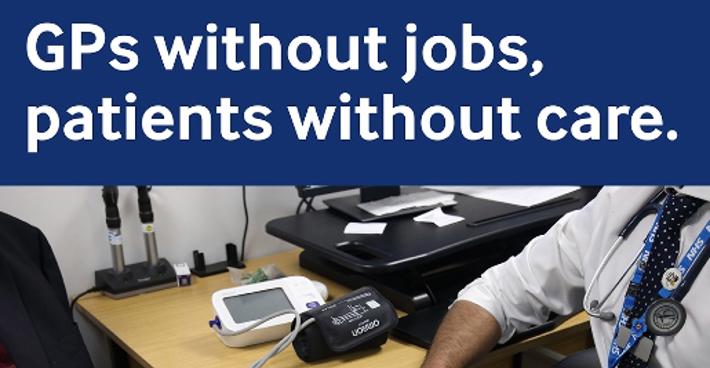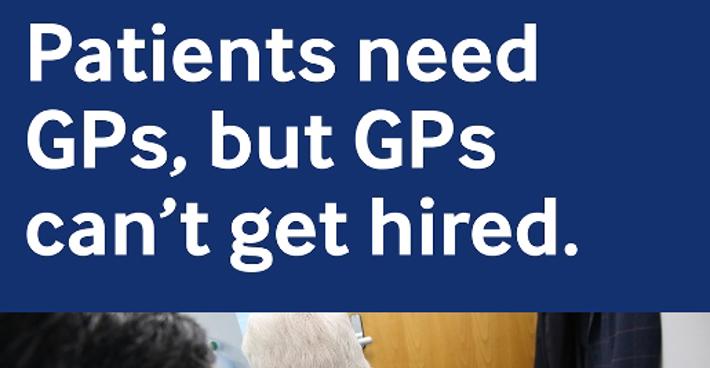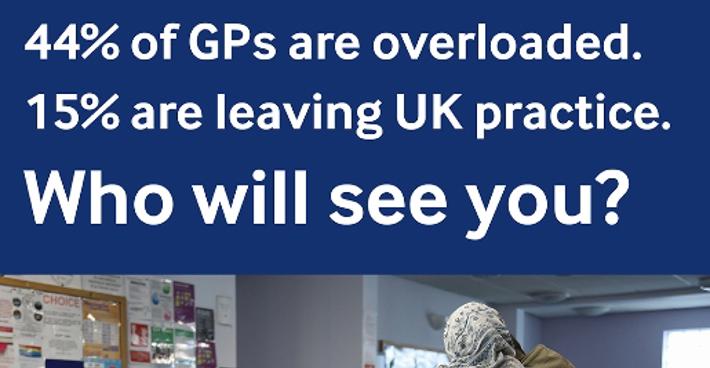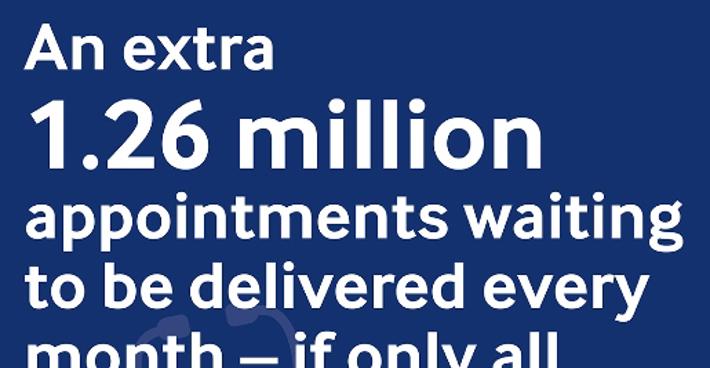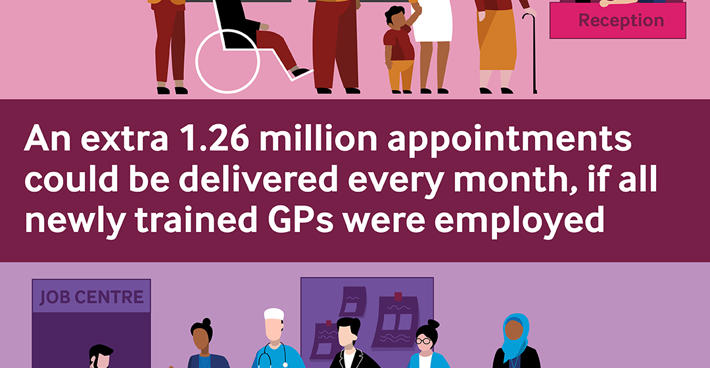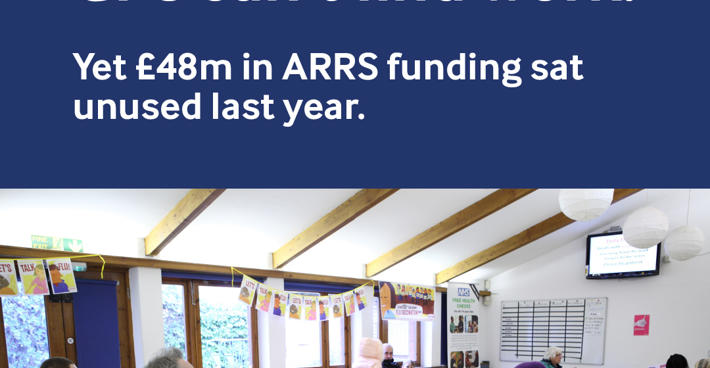GPs without jobs, patients without care
We cannot afford to waste the talent, time and dedication of our future GPs. We need the Governments of the UK to act now and ensure that GPs, who want to work and serve their communities, have jobs to go to and fulfilling careers in the NHS.
- Ring-fenced, additional, direct-to-practice core funding to address GP underemployment and unemployment
- A national retention strategy
- End the ARRS scheme
- Survey on underemployment and unemployment
- Virtual rally
- Written to the Secretary of State for Health and Social Care, Wes Streeting
- Write to your MP
- Ask your practice to display GP unemployment leaflets in the waiting room
- Engage with your LMC and with your regional Sessional or Registrar representative
- Read the safe working guidance
Understanding the GP workforce crisis
While the data shows an overall GP shortage in England, many qualified GPs face unemployment due to structural barriers including limited practice funding, difficulties securing GP partner positions, and challenges with the ARRS scheme.
How to fix the issue of GP sessional and registrar unemployment
Addressing GP unemployment and underemployment through increased practice funding
To address the issue of GP unemployment and meet patient needs, we are advocating for:
- ring-fenced, additional, direct-to-practice core funding, to hire newly qualified and currently under/unemployed GPs as practice-based GPs;
- more practice-based opportunities for GPs at all career stages.
Retention - England only
A national retention strategy for GPs in England to be factored into the Ten-Year Plan revisions with a commitment to: reducing social inequity, increasing continuity of care, and reducing the GP to patient list size ratio as per GPC England’s Patients First manifesto.
End the ARRS scheme – England only
The Additional Roles Reimbursement Scheme (ARRS) funding, which has now been expanded to include newly-qualified GPs within two years of qualification, is controlled at a Primary Care Network level. This means many new GPs face the prospect of relocation to distant areas, disrupting their personal lives and undermining the continuity of care for patients. It also does not help GPs who are beyond the two year mark since qualifying.
The ARRS scheme must end, and that funding be redistributed directly to practices, to enable them to hire GPs directly and meet the needs of their patients.
What we are doing about it
Virtual Rally
In February, the BMA held a virtual rally to confront the growing crisis of GP under and unemployment. The event explored the challenges facing GPs today, including increasing workloads, shrinking job opportunities, and concerns over ARRS funding and supervision.
Discussion focused on the urgent need to address financial instability in the GMS contract, improve practice funding, and strengthen support for the workforce. Speakers highlighted the importance of GP involvement in local representative bodies, encouraging sessional GPs to engage with their LMCs for advocacy and support.
The rally also shed light on the worsening job market for newly qualified GPs, particularly international medical graduates, and the emotional toll that uncertainty and instability continue to have on the profession.
Attendees were urged to take action by using their networks, connecting with local committees, and exploring flexible roles such as urgent treatment centres and extended access hubs.
Watch the full event.
Letter to the Secretary of State for Health and Social Care
We have written to the Secretary of State for Health and Social Care, Wes Streeting, to raise serious concerns that up to 1,000 newly qualified GPs could be left without jobs when they finish training later this summer. This looming workforce crisis demands immediate attention.
We are actively seeking a meeting with the Secretary of State to press for urgent solutions and ensure that new GPs are supported into employment- not left behind at a time when patient need is greater than ever.
Read our press release and letter to learn more.
As our campaign progresses, we are committed to engaging with the media, the public, and patients to shine a light on the growing crisis in GP employment and what it means for access to care.
This is a shared challenge that affects us all. We need collective action to ensure that newly qualified GPs have jobs and that patients can continue to see the GPs they need.
How you can help tackle GP unemployment and underemployment
- Understanding the broader campaign for better funding and safer working conditions will empower you to contribute effectively to the collective push for change.
- Use our ‘Write to your MP’ tool below to tell your local representative how many hours you could be working, if you were employed.
- Engage with your LMC and with your regional Sessional or Registrar representative
- Ask your practice to display these GP Unemployment leaflets in your patient waiting rooms to raise awareness of this issue. We need to show patients why the appointment times are only getting longer – there are not enough GPs and yet there are many wanting more work.
- Access support and resources for GPs experiencing unemployment
GP unemployment and underemployment data
Our survey on sessional GP unemployment
Last summer, the BMA conducted a survey of locum GPs, providing valuable insights into the growing locum GP unemployment crisis. However, we recognised that this issue also significantly affects salaried GPs.
To build on this work, we conducted a new survey in early 2025 to capture the full scope of GP underemployment and unemployment across the UK. The findings confirm the severity of the issue with:
- 56% of GPs wanting to work more hours in the NHS but cannot find suitable opportunities.
- 15% of respondents are unable to find any GP work at all.
- 60% of GPs reported a decline in pay rates for GP work over the past year.
- 69% reported experiencing stress or anxiety due to un- or underemployment, with many also facing financial hardship.
- One in five (21%) are making definite plans to leave the profession, and nearly half (47%) are considering alternative career paths.
These findings highlight the urgent need for action to address the GP workforce crisis. The survey findings were further explored by The Doctor, while GPOnline used our research to highlight the lack of employment opportunities.
Staying safe, organised and united
GP partners across England had been taking part in collective action. While the 2025/26 GP contract agreement ended GPC England’s dispute with the Government, action remains crucial to address persistent commissioning gaps. Practices should be appropriately resourced for the work they undertake in providing vital care for patients. Local ongoing actions may impact sessional GPs and GP registrars in different ways.
How you can get involved:
- Discuss the challenges of sessional GP and GP registrars unemployment with your practice and emphasise the importance of addressing funding shortfalls, reducing workloads, and advocating for sustainable employment practices
- Understanding the broader campaign for better funding and safer working conditions will empower you to contribute effectively to the collective push for change.
The BMA’s GP Campaign webpage provides comprehensive information on collective actions and resources to help GPs navigate this challenging time:
- Safe working guidance
- Guidance on GP local action: 'Mind the Gap’ - downloadable template letters to help manage workload and limit capacity to deliver safe, high-quality care
By actively participating in these efforts, you will be contributing to a stronger and more sustainable general practice. Together, we can advocate for better funding and create an environment where every GP - salaried, locum, registrar or partner - feels empowered to provide the highest standard of care for patients while safeguarding their own wellbeing.


